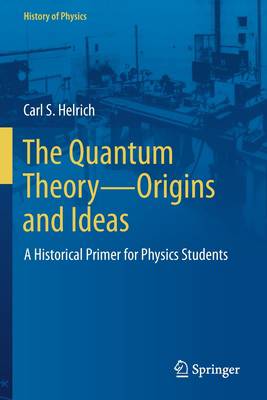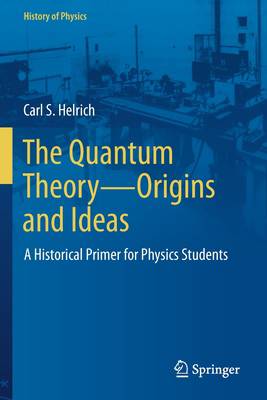
- Retrait gratuit dans votre magasin Club
- 7.000.000 titres dans notre catalogue
- Payer en toute sécurité
- Toujours un magasin près de chez vous
- Retrait gratuit dans votre magasin Club
- 7.000.0000 titres dans notre catalogue
- Payer en toute sécurité
- Toujours un magasin près de chez vous
Description
This book offers a fresh perspective on some of the central experimental and theoretical works that laid the foundations for today's quantum mechanics: It traces the theoretical and mathematical development of the hypotheses that put forward to explain puzzling experimental results; it also examines their interconnections and how they together evolved into modern quantum theory. Particular attention is paid to J.J. Thomson's atomic modeling and experiments at the Cavendish Laboratory, Max Planck's struggle to explain the experimental results of Heinrich Rubens and Ferdinand Kurlbaum, as well as the path leading from Louis de Broglie's ideas to the wave theory of Erwin Schrödinger.
Combining his experience in teaching quantum mechanics with his interest in the historical roots of the subject, the author has created a valuable resource for understanding quantum physics through its history, and a book that is appreciated both by working physicists and historians.Spécifications
Parties prenantes
- Auteur(s) :
- Editeur:
Contenu
- Nombre de pages :
- 241
- Langue:
- Anglais
- Collection :
Caractéristiques
- EAN:
- 9783030792701
- Date de parution :
- 04-08-22
- Format:
- Livre broché
- Format numérique:
- Trade paperback (VS)
- Dimensions :
- 156 mm x 234 mm
- Poids :
- 358 g

Les avis
Nous publions uniquement les avis qui respectent les conditions requises. Consultez nos conditions pour les avis.






